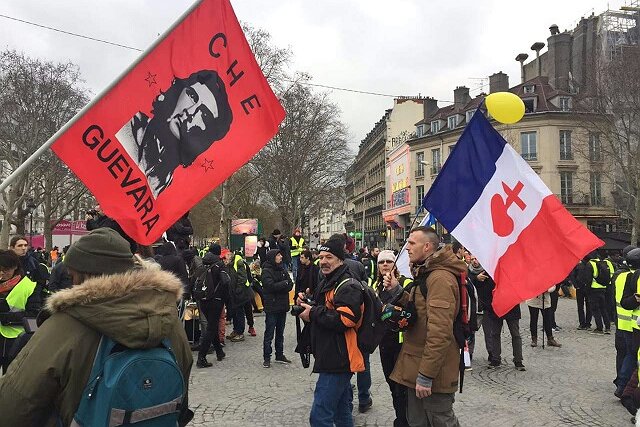
Follow-up to the ‘Ibiza affair’:Standards Are Being Ruined
Current events in Austria are important for Germany too and give rise to a few fundamental considerations. Winston Churchill's thesis that democracy is a bad form of government, but the best of those that have been tried so far, can be considered correct until proven otherwise. Nevertheless, it needs to be supplemented.
Even in states that explicitly define themselves as democratic, democratic institutions, regulations and procedures cover only a fraction of the political process. Beyond that, democracy is a backdrop, consisting of simulations, fictions and self-delusions, behind which decisions are made that the demos neither wants nor has legitimized.
So what has happened in Austria? A successful government with a secure parliamentary majority has been destroyed from without. Secret service means were used for this purpose, although the background details are not clear at the moment. But the message is clear: you can vote for what you want. However, what the will of the voters means, is not within your authority to decide!
Absolute positions of liberal democracy
The ‘plot’ (Dieter Stein) can no longer be subsumed under the term ‘post-democracy.’ The British political scientist Colin Crouch understood this to mean the erosion of the parliamentary form of government as a consequence of the increasing complexity of modern societies, as a result of which lobby groups, non-governmental organisations (NGOs) and multinational corporations gain influence. Politicians respond to the decline in influence, prestige, and problem-solving competence by resorting to opinion polls, show business and marketing tools.
According to Crouch, this is not democratic, because the citizen is demoted to being a passive and manipulated participant and is only occasionally involved in decision-making. But it is also not undemocratic, “because the concern of politicians for their relationship with the citizens plays such a large role.” This describes a relatively soft practice in which the mandatory reference to the demos is reinterpreted but not removed.
Reality has long since brushed this description aside. For years critics from different quarters have complained that the representatives of liberal democracy tend to set their point of view absolutely and act in a totalitarian way. In fact, their practice amounts to powerfully transferring the One World idea into reality and transforming Europe into a province of the desired global regime ("global governance").
Total declaration of hostility by those in power
Life in Europe is being transformed and standardised through migration, concessions to Islam, gender and climate campaigns. This policy is propagated as the only legitimate concretization of democracy. The opponents are demonized as (right-wing) populists, enemies of democracy and of Europe.
But populism means nothing more than asking: What follows from those decisions for us, for the people, for the demos? It means giving oneself the space to try and avert foreseeable damage from oneself, to defend oneself, in other words to practice democracy. So it’s not just different points of view that collide here, but two models of democracy that are contrary to each other. This explains the comprehensive declaration of hostility by those in power to their opponents. Here in Germany, they form – in the words of former Federal President Joachim Gauck – the “dark Germany,” which originates from a brown-colored (as in brown-shirts) primeval ground/base and has no right to exist.
This is also the background to the scandal surrounding Heinz-Christian Strache, the former vice-chancellor and former chairman of the ‘right-wing populist’ FPÖ of Austria, which has been set in motion via the German media and, for obvious reasons, is widely discussed in Germany.
Almost unanimous media choir
The video is embarrassing, it shows a fallible person airing unattractive trains of thought, which apparently were never put into action. Does anybody think that things are any different in the back room deals between so-called democratic politicians, business and media bosses? Hadn’t Chancellor Angela Merkel managed to get politically unwelcome posts deleted in 2015 in an overheard conversation with Facebook boss Mark Zuckerberg?
The accusation that Strache wanted to abolish the critical and pluralistic media is absurd because they stubbornly refuse to prove that this is what they are. Most political journalists work like bots, like automated programs that generate the same formulas at fixed intervals (Nazi – xenophobe – right-wing extremist – islamophobe – racist), without interacting with reality. In the ‘Ibiza affair,’ too, they have unanimously adopted the expected attitude, instead of criticizing the perfidy of the staging and the intrusion on someone’s personal rights and private sphere.
After all, it was the almost lockstep-media which formed the backdrop against which Strache had his stupid ideas that became public: an FPÖ-friendly reorientation of the tabloid paper ‘Krone’ was intended to make the press landscape a little less one-sided, and instead more critical and pluralistic. The idea was to create an approximate equality of fire power in the media.
Government and parliament are only two centers of power among many
Parliamentary majorities and even ministerial offices are of little use in the long run, if alternative parties do not also have a pre- or metapolitical, especially media environment available to them. Government and parliament are only two centers of power among many. The informal power of media groups, lobbyists, NGOs, globalist networks, foundations and think tanks is hardly less. Only when counterweights have arisen in these areas can serious competition arise.
A Viennese lawyer, apparently involved in the Strache video, justified the intrigue as a “project motivated by civil society.” This is in line with the political-media trend. The “fight against the Right” permits vulgarities, breaches of trust and law, physical attacks and, in the end, murder and manslaughter. Arguments are not brought forward, but the opponent is treated as what in Stasi German would be called a “hostile-negative force” and processed in a complex “operative process”.
He is observed, defamed, his activities sabotaged. The goal is his social isolation, demoralization, psychological and physical attrition, and ultimately his resigned withdrawal from political activities. Not only is the victim damaged, but also the human substance of the stooges and the moral standards of society.
Parallels between the Federal Republic and the GDR are becoming more and more plausible
It’s becoming more plausible from day to day to draw such parallels between the German Federal Republic and the GDR (East Germany). The novel “Magdalena” by civil rights activist Jürgen Fuchs, published in 1998, is not a literary masterpiece, but its documentary value is considerable. Fuchs, who was imprisoned in 1976/77 in the Stasi prison in Magdalenenstraße, Berlin and then deported to the West, describes his Stasi file research in the former Stasi Records Agency.
The administration was in the hands of West German civil servants; former Stasi employees gave them their expert knowledge. Fuchs saw himself as being hampered in his investigations. Every single photocopy had to be applied for, submissions had to be entered, corridors had to be walked along. Fuchs called this the “administrative, official taming of a revolution” and asked: “Is it about the re-education of the Eastern population? The comprehensive allocation of registration numbers?”
One answer is provided by the state support of the Amadeu Antonio Foundation, which is headed by a former Stasi informant and entrusted by the Ministry of Justice with monitoring Internet communications. The head of the Thuringian Office for the Protection of the Constitution, poorly qualified but all the more craving for validation, who was appointed by politicians of the SED successor party, also sits on its board of trustees.
The Strache scandal is frightening
This is why the staged scandal around Heinz-Christian Strache appears frightening also in Germany. Not only ‘populist’ politicians have to reckon with Orwell's ‘Big Brother’ always standing next to them and listening to their thoughts. Already today 71 per cent of sampled respondents in Germany are of the opinion that statements about immigration, Muslims or Islam are dangerous. Moreover, more than half of the respondents don’t like to speak publicly about topics such as the Nazi era or Jews. Right-wing extremism and the AfD are also reluctantly discussed in public.
The aggressiveness of the establishment, which reaches as far as their willingness to subvert, shows that they have no political arguments at their disposal. Their European election campaign was completely empty. They can only mobilize in a makeshift way by cultivating the demonized ‘populist’ enemy image. This holds great potential for further escalations.
Originally written in German for 'Junge Freiheit', where the article appeared under the title 'Die Maßstäbe werden verdorben', on June 2nd 2019.




